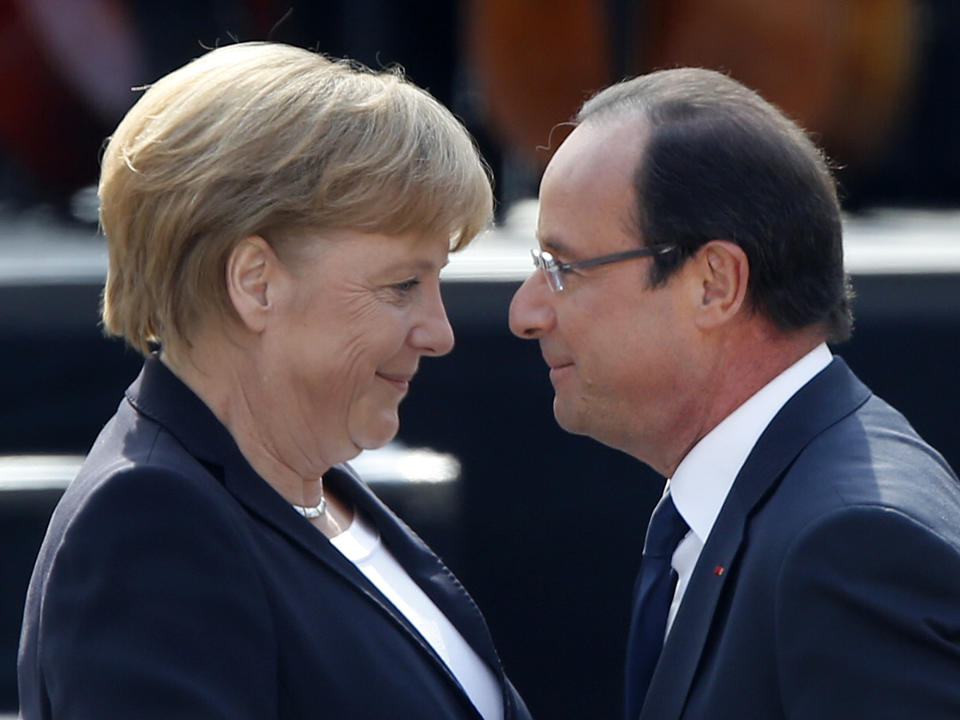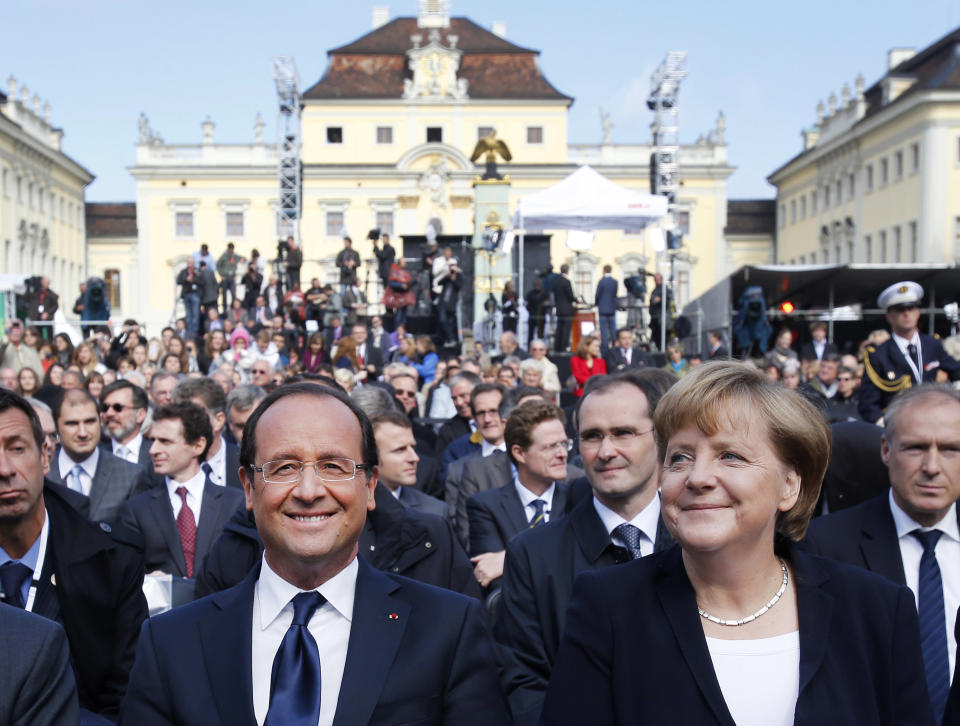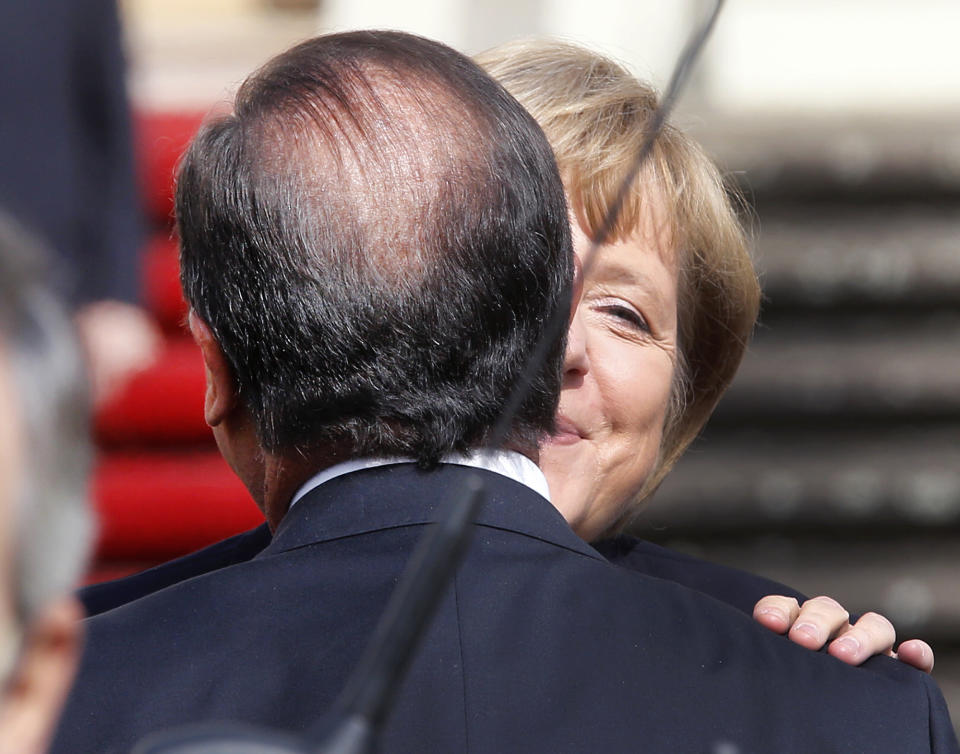German, French leaders say stronger Europe needed
BERLIN (AP) — The leaders of France and Germany both stressed Saturday that Europe must further deepen its political and economic integration to ensure peace and continuous prosperity across the continent.
French President Francois Hollande met Chancellor Angela Merkel in the southwestern German city of Ludwigsburg to celebrate an important anniversary of their countries' reconciliation following the end of World War II.
"France and Germany have a very special responsibility, we form the heart of Europe," said Hollande, adding that the European Union's status quo can only be seen as the starting point for a deeper integration.
"Stopping would mean falling back. We don't have a choice, but to march toward the destiny that is ours, march toward a unified Europe," he added.
Europe's 17-nation currency zone is experiencing a deep crisis, Hollande said, therefore urging Germany and other nations to help "create instruments that make us stronger: the budgetary union, the banking union, the social union, a political union."
Merkel said both countries will and must work together closely to strengthen Europe to weather those new challenges.
"However great the economic challenges may be. It remains and will remain valid: We Europeans are united in the pursuit of our happiness," she said.
France's then-leader Charles de Gaulle in 1962 addressed German youth in Ludwigsburg — speaking in German — in a speech that was hailed as a major step toward building German-French ties, after the nations had fought each other in both world wars, and were often referred to as arch-enemies.
De Gaulle and his German counterpart Konrad Adenauer started the reconciliation efforts in the aftermath of World War II.
Merkel said the two leaders, who had witnessed themselves the horrors of war, laid the foundation of Europe's unification in bringing together their nations "who were long said to be arch-enemies — what a terrible word." They were convinced that "natural enmity between people could not exist," she added.
The two countries' rapprochement evolved to become a motor of Europe's integration less than two decades after World War II. France and Germany, representing almost half of the eurozone's economic output, are still seen as key players in forging European policies.
Addressing the youth of both nations, Hollande concluded his speech in German, saying "it is now your role to make the European dream a reality and give it a future."
___
Juergen Baetz can be reached on Twitter at www.twitter.com/jbaetz



